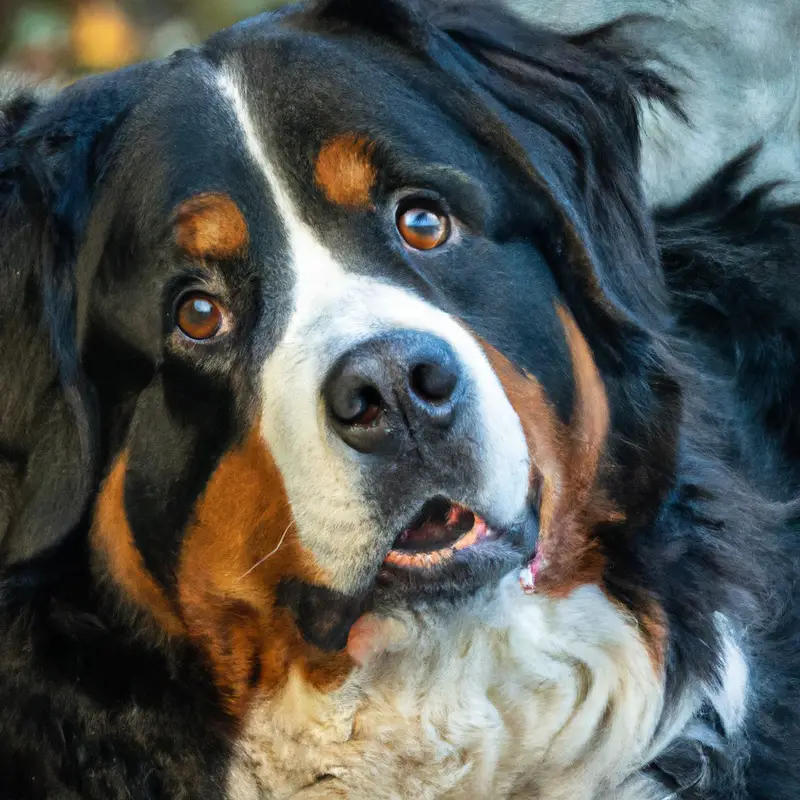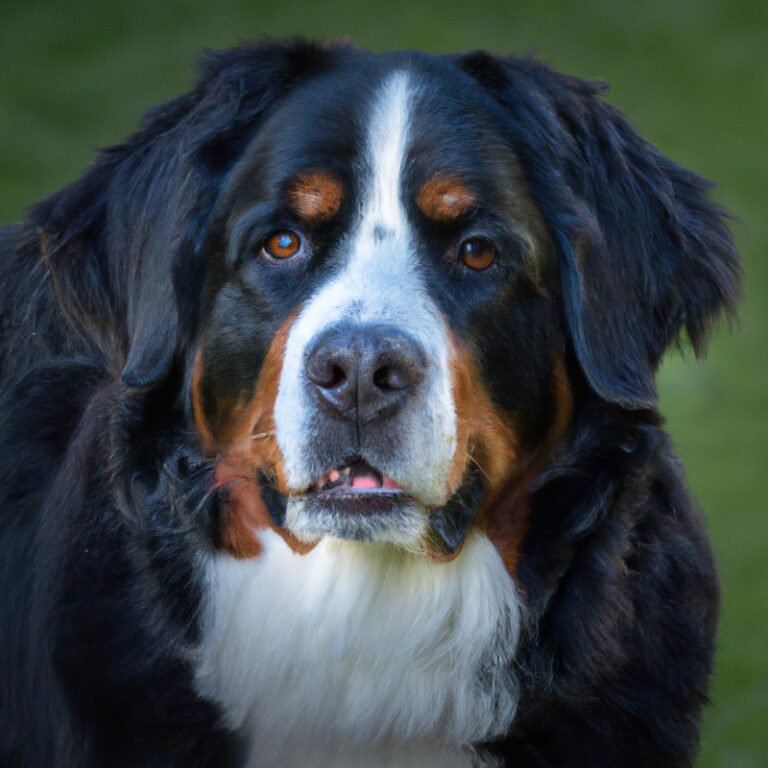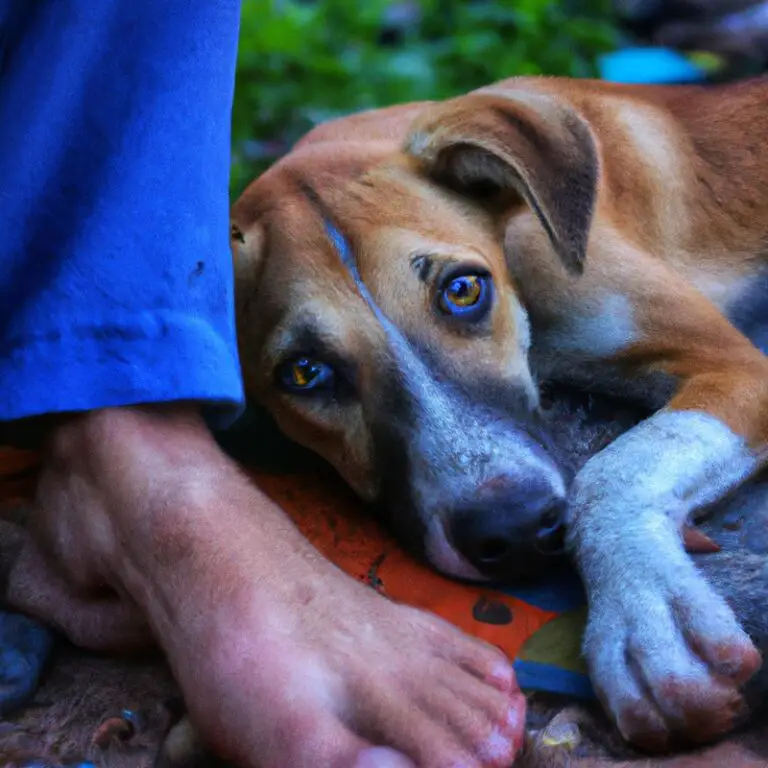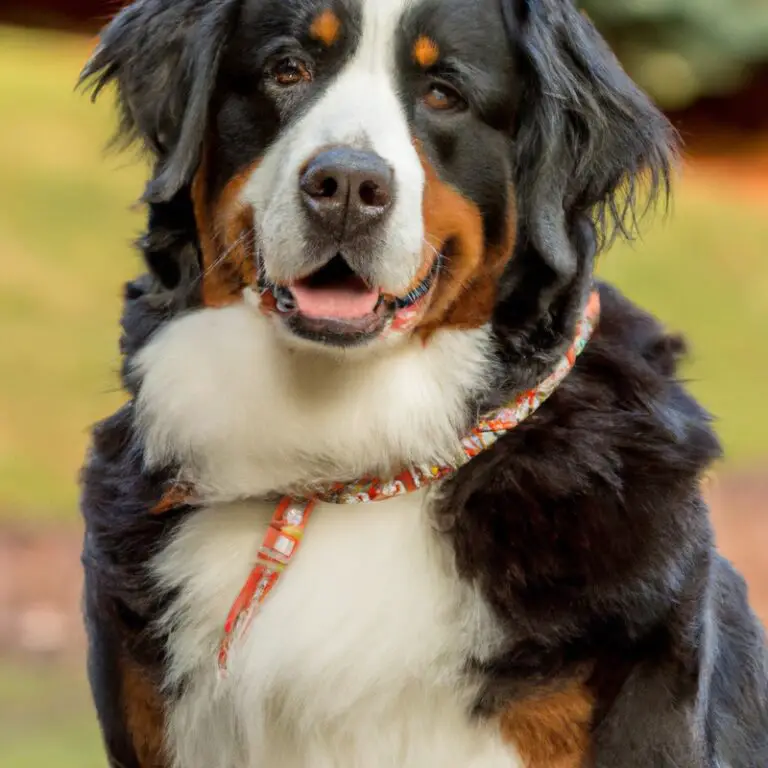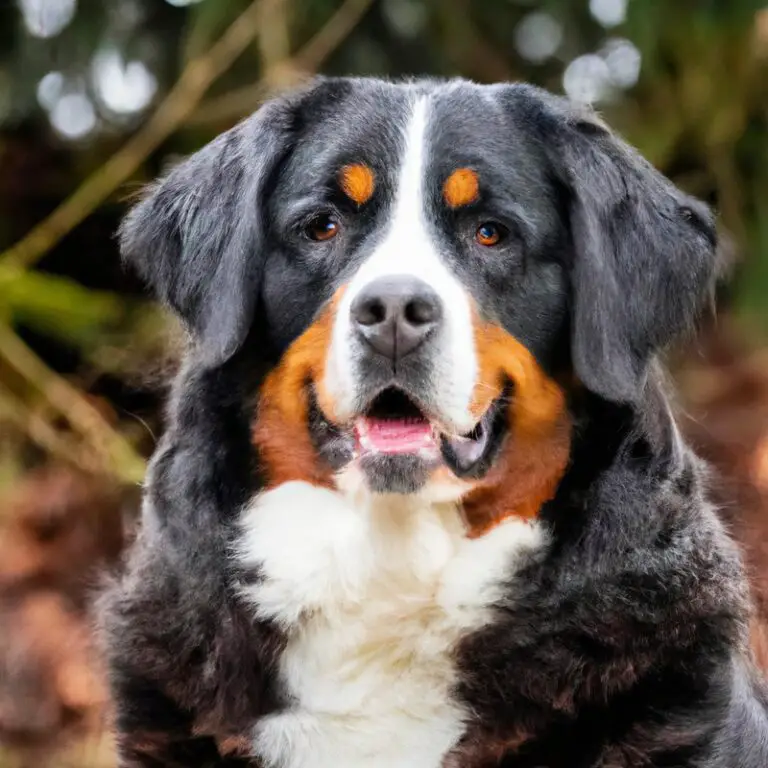What Are The Best Ways To Exercise a Senior Bernese Mountain Dog?
Key Takeaways:
- Engage in low-impact exercises to protect joints and reduce strain.
- Focus on mental stimulation through interactive games and puzzles.
- Incorporate regular, shorter exercise sessions to accommodate their stamina.
- Supervise and monitor your senior Bernese Mountain Dog’s activity level to avoid overexertion.
Are you the proud owner of a senior Bernese Mountain Dog?
If so, you already know that these gentle giants require regular exercise to stay happy and healthy.
But what are the best ways to provide your furry friend with the right amount of physical activity?
In this article, I’ll share my expertise and guide you through the importance of exercise for senior Bernese Mountain Dogs.
We’ll explore the benefits, discuss low-impact exercises, and even delve into the world of mental stimulation.
Get ready to discover the secrets to keeping your senior Bernese Mountain Dog in top shape and enjoying their golden years to the fullest!
| Exercise Method | Description |
|---|---|
| Walking | Regular walks on a leash or in an enclosed area |
| Swimming | Low-impact exercise that is easy on joints |
| Hiking | Exploring nature trails and challenging terrains |
| Gentle Playtime | Engaging in interactive activities, such as fetch or gentle tug-of-war |
| Canine Hydrotherapy | Specialized water-based exercises with a therapist |
| Agility Training | Training sessions with obstacles and coordination exercises |
| Senior Dog Exercises | Specific exercises tailored for the needs of senior dogs |
Exercise Importance for Senior Bernese Mountain Dogs
Why is Exercise Important for Senior Bernese Mountain Dogs?
Exercise is vital for senior Bernese Mountain Dogs because it helps maintain their physical and mental well-being.
Regular exercise can keep their muscles strong, prevent weight gain, and improve their cardiovascular health.
It also aids in joint mobility, reducing the risk of arthritis and other age-related conditions.
Additionally, exercise provides mental stimulation and helps prevent boredom and behavioral issues.
Short but frequent walks, low-impact activities, and puzzle toys are great ways to keep senior Bernese Mountain Dogs active and happy.
What are the Benefits of Exercise for Senior Bernese Mountain Dogs?
Exercise is incredibly important for senior Bernese Mountain Dogs. First, it helps to maintain a healthy weight and prevent obesity, which can lead to various health issues.
Second, regular exercise promotes cardiovascular health and strengthens their muscles, improving their overall fitness and mobility.
Third, it stimulates their mental well-being, providing both physical and mental stimulation. Lastly, exercise also helps to prevent or reduce the risk of developing certain conditions like arthritis and joint problems.
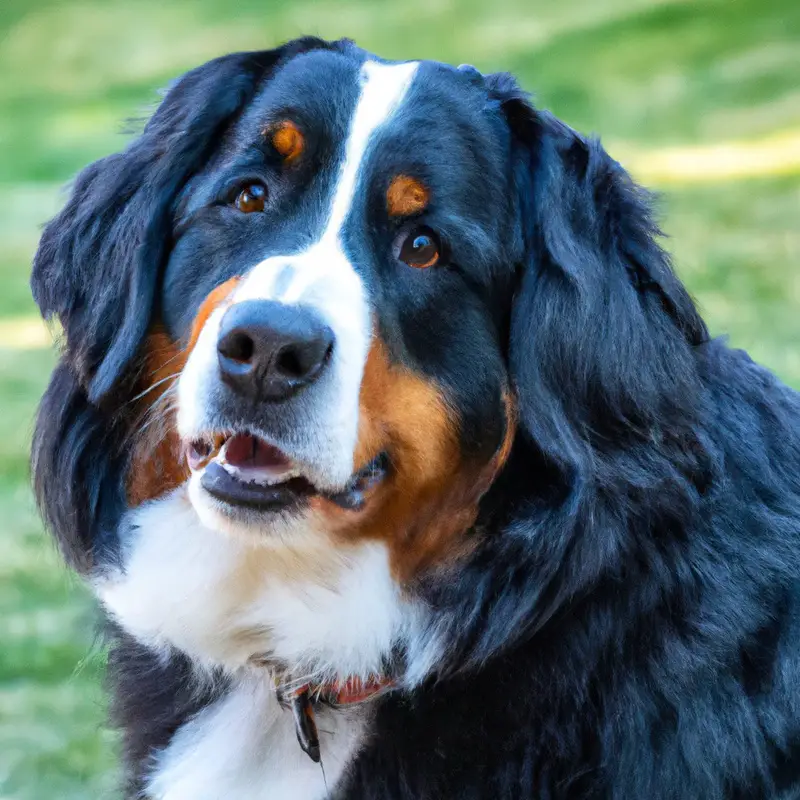
Understanding Your Senior Bernese Mountain Dog’s Exercise Needs
How Much Exercise do Senior Bernese Mountain Dogs Need?
Senior Bernese Mountain Dogs require moderate exercise to keep them healthy and happy. Aim for around 30 minutes to an hour of daily activity, divided into multiple shorter sessions.
This can include walks, gentle hikes, or interactive playtime.
Adjust the intensity and duration of exercise based on your dog’s individual needs and any health concerns. Always consult with your veterinarian to create a suitable exercise routine for your senior Bernese Mountain Dog.
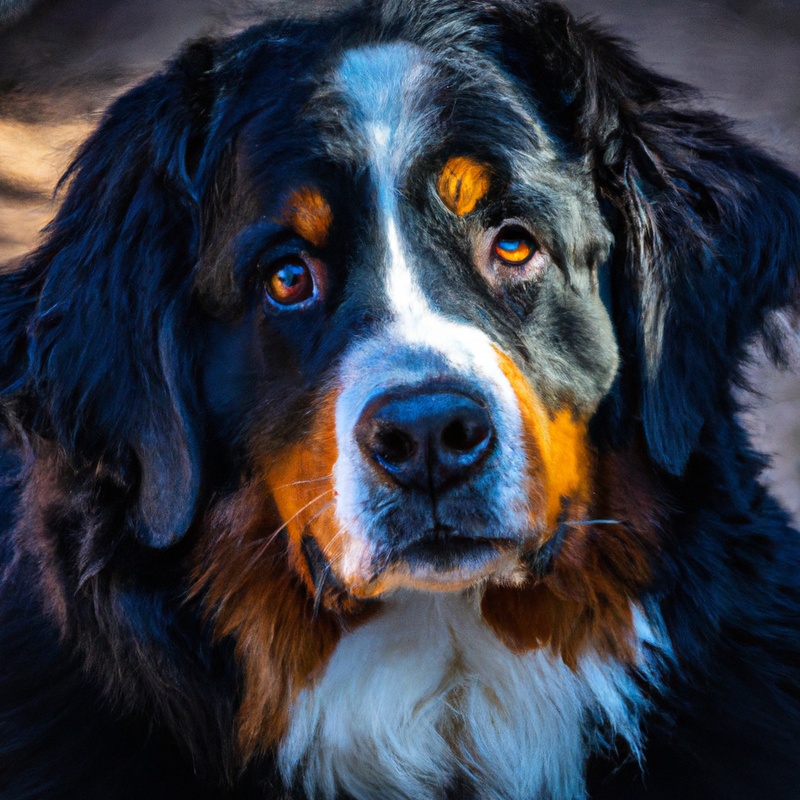
How to Assess Your Senior Bernese Mountain Dog’s Fitness Level
Assessing your senior Bernese Mountain Dog’s fitness level is important to ensure their overall health and well-being. Here’s how you can do it:
- Observe their activity level: Pay attention to how active your dog is on a daily basis. Are they still eager to go for walks or play, or do they seem tired and lethargic?
- Monitor their breathing: During exercise, keep an eye on how your dog is breathing. Heavy panting or difficulty in catching their breath may indicate a decrease in fitness.
- Check their weight: Keep an eye on their weight and body condition. Excess weight can put unnecessary strain on their joints and lead to health problems.
- Assess mobility: Observe how well your dog moves and if they have any difficulty in getting up, climbing stairs, or jumping. Decreased mobility may be a sign of reduced fitness.
- Consult with your vet: Regular check-ups with your vet are essential for assessing your dog’s fitness level. They will be able to provide a professional evaluation and recommend any necessary adjustments to their exercise routine.
By regularly assessing your senior Bernese Mountain Dog’s fitness level, you can make informed decisions about their exercise routine and ensure their well-being as they age.
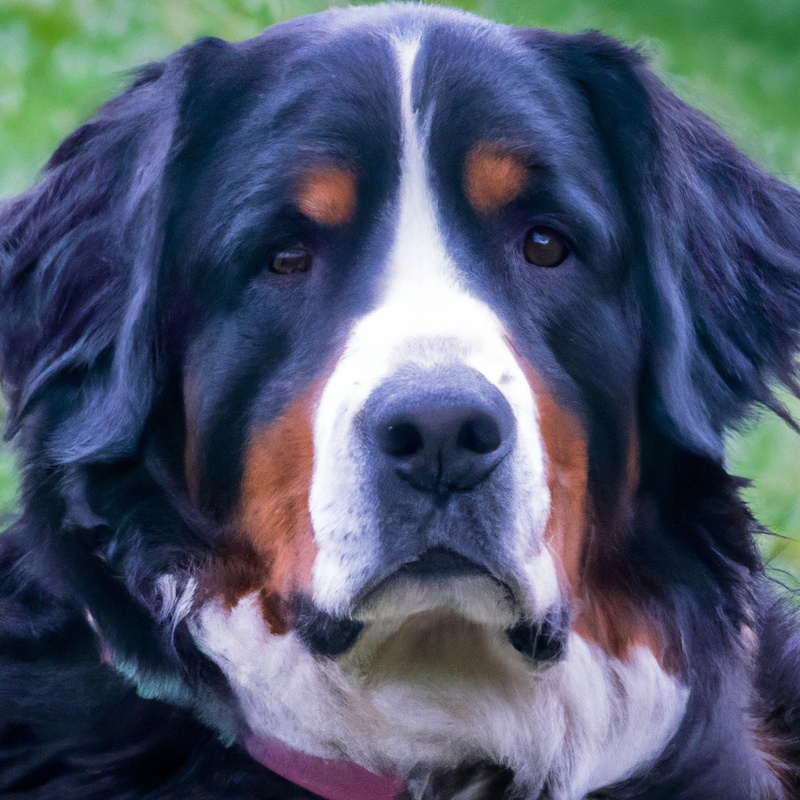
Tailoring Exercise to Your Senior Bernese Mountain Dog’s Abilities
When it comes to exercising your senior Bernese Mountain Dog, it’s important to tailor the activities to their abilities.
Here are a few ways you can do that:
- Shorter walks: Instead of long hikes or intense runs, opt for shorter and more leisurely walks to accommodate your senior dog’s stamina.
- Low-impact exercises: Choose activities that are gentle on their joints, such as swimming or gentle play sessions.
- Mental stimulation: Engage your dog with puzzle toys or obedience training to keep their mind active and entertained.
- Regular veterinary check-ups: Make sure to consult with your vet about your dog’s exercise routine and any specific limitations or recommendations for their age and health.
By understanding and respecting your senior Bernese Mountain Dog’s abilities, you can create an exercise routine that keeps them healthy, happy, and comfortable.
Low-Impact Exercises for Senior Bernese Mountain Dogs
Walking and Leisurely Hiking
Walking and leisurely hiking are excellent low-impact exercises for senior Bernese Mountain Dogs. These activities provide a great opportunity for them to enjoy the outdoors while still getting some exercise.
Take your senior Berner on regular walks around the neighborhood, keeping the pace comfortable for them.
Leisurely hiking on easy trails is also a great way to engage their muscles and keep them active. Just remember to choose trails with terrain suitable for their age and fitness level.
Swimming or Water Therapy
Swimming or water therapy can be an excellent low-impact exercise for senior Bernese Mountain Dogs. It helps to improve their range of motion, build muscle strength, and maintain cardiovascular health.
The buoyancy of water reduces stress on their joints, making it ideal for dogs with arthritis or mobility issues.
Additionally, swimming also provides mental stimulation and a fun activity for your furry friend. Always supervise your dog during water therapy sessions and consult with your veterinarian to ensure it’s suitable for your dog’s specific needs.
Gentle Play Sessions and Puzzle Toys
Gentle play sessions and puzzle toys are great options for exercising a senior Bernese Mountain Dog.
During play sessions, engage in activities that don’t put too much strain on their joints, such as gentle fetch or tug-of-war.
Puzzle toys can mentally stimulate them while keeping them physically active.
These activities help maintain their cognitive skills and muscle tone, ensuring a healthy and happy senior dog.
It’s important to monitor their energy levels and adjust the duration and intensity of play accordingly.
Mental Stimulation for Senior Bernese Mountain Dogs
Importance of Mental Stimulation for Senior Bernese Mountain Dogs
Mental stimulation is vital for senior Bernese Mountain Dogs.
It keeps their minds sharp and prevents cognitive decline.
Interactive toys, puzzle games, and training sessions can provide mental challenges.
Regular social interactions with dogs and humans also promote mental stimulation.
Engaging their senses through new experiences, like going for walks in different environments, can also be beneficial.
Remember, keeping your senior Bernese Mountain Dog mentally stimulated is just as important as physical exercise for their overall well-being.
Activities to Provide Mental Stimulation
One of the best ways to provide mental stimulation for your senior Bernese Mountain Dog is through interactive toys and puzzles.
These toys engage their minds and keep them mentally active.
Another activity is teaching them new tricks or commands, which challenges their cognitive abilities.
Additionally, you can take them on regular walks or visit different environments to provide new sensory experiences.
Lastly, consider enrolling them in canine enrichment classes or activities designed specifically to stimulate their minds.
Tips for Exercising a Senior Bernese Mountain Dog Safely
Warm-up and Cool-down Exercises
Warm-up and cool-down exercises are essential for senior Bernese Mountain Dogs.
Before exercising, start with a few minutes of walking to warm up their muscles.
Gentle stretching can also help improve flexibility and prevent injuries.
After the exercise session, gradually decrease the intensity, allowing the dog to cool down.
Remember, these exercises are important to ensure the safety and well-being of your senior Bernese Mountain Dog.
Avoiding Overexertion and Overheating
To avoid overexertion and overheating in your senior Bernese Mountain Dog, it’s important to pay attention to their physical limitations and ensure they don’t get too hot.
- Monitor their activity levels: Keep an eye on how much exercise your dog is getting and adjust accordingly. Senior dogs may not have the same stamina as they used to, so shorter, more frequent walks or play sessions are ideal.
- Choose the right timing: Exercise in the cooler parts of the day, such as early morning or late evening. This helps prevent overheating and allows your dog to enjoy the activity without discomfort.
- Provide shade and water: During exercise, make sure your dog has access to shade and fresh water at all times. This helps them cool down and stay hydrated.
- Avoid high-intensity activities: Reduce the intensity of exercise, especially in hot weather. Choose gentle activities like swimming or short walks to prevent overexertion.
- Watch for signs of fatigue or overheating: Keep an eye out for excessive panting, drooling, or weakness. If you notice any of these signs, pause the activity, find a shaded area, and offer water.
Remember, it’s crucial to prioritize your senior Bernese Mountain Dog’s safety and well-being during exercise.
By being aware of their limits and providing adequate care, you can help them stay healthy and happy.
Regular Vet Check-ups and Health Monitoring
Regular vet check-ups and health monitoring are essential for a senior Bernese Mountain Dog’s well-being. Schedule routine visits with your vet to ensure their overall health is in check.
These check-ups allow for early detection of any health issues and help monitor their weight and mobility.
Regular monitoring of your senior dog’s health ensures that any potential problems are addressed promptly, allowing for a longer and healthier life.
Frequently Asked Questions (FAQs)
Can Senior Bernese Mountain Dogs Participate in Agility or Obedience Training?
Senior Bernese Mountain Dogs can still participate in agility or obedience training, but it’s important to make accommodations for their age.
Keep the exercises low-impact and adjust the intensity to match their energy levels.
Focus on mental stimulation and gentle exercises to maintain their physical health.
Always consult with a veterinarian before starting any training program for senior dogs.
How Can I Motivate a Senior Bernese Mountain Dog to Exercise?
To motivate a senior Bernese Mountain Dog to exercise, it’s important to make it enjoyable and manageable. Here are a few tips:
- Start slow: Gradually introduce exercise to prevent overexertion. Begin with short walks or gentle playtime sessions.
- Use positive reinforcement: Reward your dog with treats, praise, and petting when they engage in exercise. This helps create positive associations and increases motivation.
- Adapt to their needs: Consider any physical limitations or health issues your dog may have and tailor the exercise routine accordingly. Consult with a veterinarian for guidance.
- Make it interactive: Engage your dog in activities they enjoy, such as playing fetch, hiding toys, or participating in low-impact agility exercises.
- Get creative: Mix up the routine to keep your senior Bernese Mountain Dog engaged and interested. Try different routes for walks or introduce new toys to keep them mentally stimulated.
Remember, it’s important to prioritize your dog’s safety and well-being while encouraging exercise. Listening to their cues and providing a comfortable environment will go a long way in motivating them to stay active.
What Are Some Signs of Overexertion in Senior Bernese Mountain Dogs?
One sign of overexertion in senior Bernese Mountain Dogs is excessive panting and difficulty breathing.
This can indicate that they are struggling to cool down and regulate their body temperature.
Another sign is excessive fatigue or being unable to keep up with their usual exercise routine.
They may also show signs of muscle stiffness, limping, or reluctance to move.
If you notice any of these signs, it’s important to give your senior Bernese Mountain Dog a break and consult with your veterinarian.
Are there Any Exercise Restrictions for Senior Bernese Mountain Dogs with Health Issues?
Senior Bernese Mountain Dogs with health issues may have exercise restrictions.
It’s important to consult with your veterinarian to determine what is suitable for your dog’s specific condition.
In some cases, moderate exercise like short walks or gentle play may be recommended.
However, more strenuous activities such as running or jumping may need to be avoided.
Regular monitoring of your dog’s health and adjusting exercise accordingly is essential to ensure their well-being.
Final Verdict
Exercise is of utmost importance for senior Bernese Mountain Dogs. Not only does it help them maintain a healthy weight and manage their energy levels, but it also provides numerous physical and mental benefits.
As responsible dog owners, it is crucial to understand our senior Bernese Mountain Dogs’ exercise needs and tailor their routines accordingly.
Low-impact exercises such as walking, swimming, and gentle play sessions are ideal for these older dogs. Mental stimulation is equally important, and activities like puzzle toys and training exercises can help keep their minds sharp.
Safety should always be a priority, with warm-up and cool-down exercises, avoiding overexertion and overheating, and regular vet check-ups.
By following these guidelines, we can ensure that our senior Bernese Mountain Dogs lead healthy and fulfilling lives.

